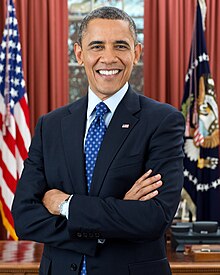As I noted in Part I, I am not the first to make this speculation--both Rep. Mike Honda and Jeff Yang (during the 2008 elections) made note of the many Asian connections in Obama's biography and background (which I already elaborated on in the previous post).
What I didn't mention in Part I was that their imagining of Obama as Asian American was riffing off of Toni Morrison's essay in The New Yorker in which she famously was quoted as saying:
white skin notwithstanding, this is our first black President. Blacker than any actual black person who could ever be elected in our children’s lifetime. After all, Clinton displays almost every trope of blackness: single-parent household, born poor, working-class, saxophone-playing, McDonald’s-and-junk-food-loving boy from ArkansasThis quote from Morrison got a lot of play during Obama's 2008 election since it was noted, many times, that Bill Clinton was not an "actual" black person but that Obama was.
However, what is missing from this widely repeated quote is the context that Morrison was writing about Clinton--namely the Lewinsky scandal and the way that the impeachment hearings were using his infidelity as the impetus to get him out of office--the ways in which
"the President’s body, his privacy, his unpoliced sexuality became the focus of the persecution, when he was metaphorically seized and body-searched"
which Morrison saw was akin to the experience of African American men being policed and persecuted based on their sexuality.
I mention this because while one could argue that there are tropes of "Asian-ness" that we can see in Obama's life--his time spent in Indonesia, his upbringing in Hawaii, his Asian extended family--they are but symbolic gestures--figurations. They aren't how he identifies and it's not how others would identify him either since we are still living in an age where we believe we know what someone who is "Asian" looks like, and we know what someone who is "black" looks like--and we apply these rubrics to people and call them racial identities.
Furthermore, the truth is that Obama does not identify as Asian American. Technically, as far as the 2010 US Census goes, he identifies as African American rather than both black and white and certainly he didn't check the "Asian" box. And it is important for us to acknowledge that people get to identify the way they want--something folks often forget when they refer to Tiger Woods as monoracially black when he, himself, identifies as mixed-race or half-black, half-Thai.
So why enter into this exercise at all? I guess I wanted to think about the limits of racial ambiguity, which is the topic of my current book manuscript--the one that has been consuming me and taking me away from being able to think about blogging. I do think that imagining race as fluid and as flexible is an anti-racist position. But I also think that there is a historic reality to racialized bodies that we can't ignore. And that's the tension between theory and praxis. It's important to be able to theorize beyond our raced bodies--to imagine a place where we can acknowledge the constructed nature of race and the ways in which multiracial people especially complicate this simplistic notion that there are pure races. But on the other hand, there are the ways that the state has regulated bodies based on believing in race.
(sigh)
So I will continue to think about the possibilities of what if--what if we could say that Barack Obama is our first black American, first mixed race American, and first Asian American president? What if checked off more than one box became the norm for all of us?





